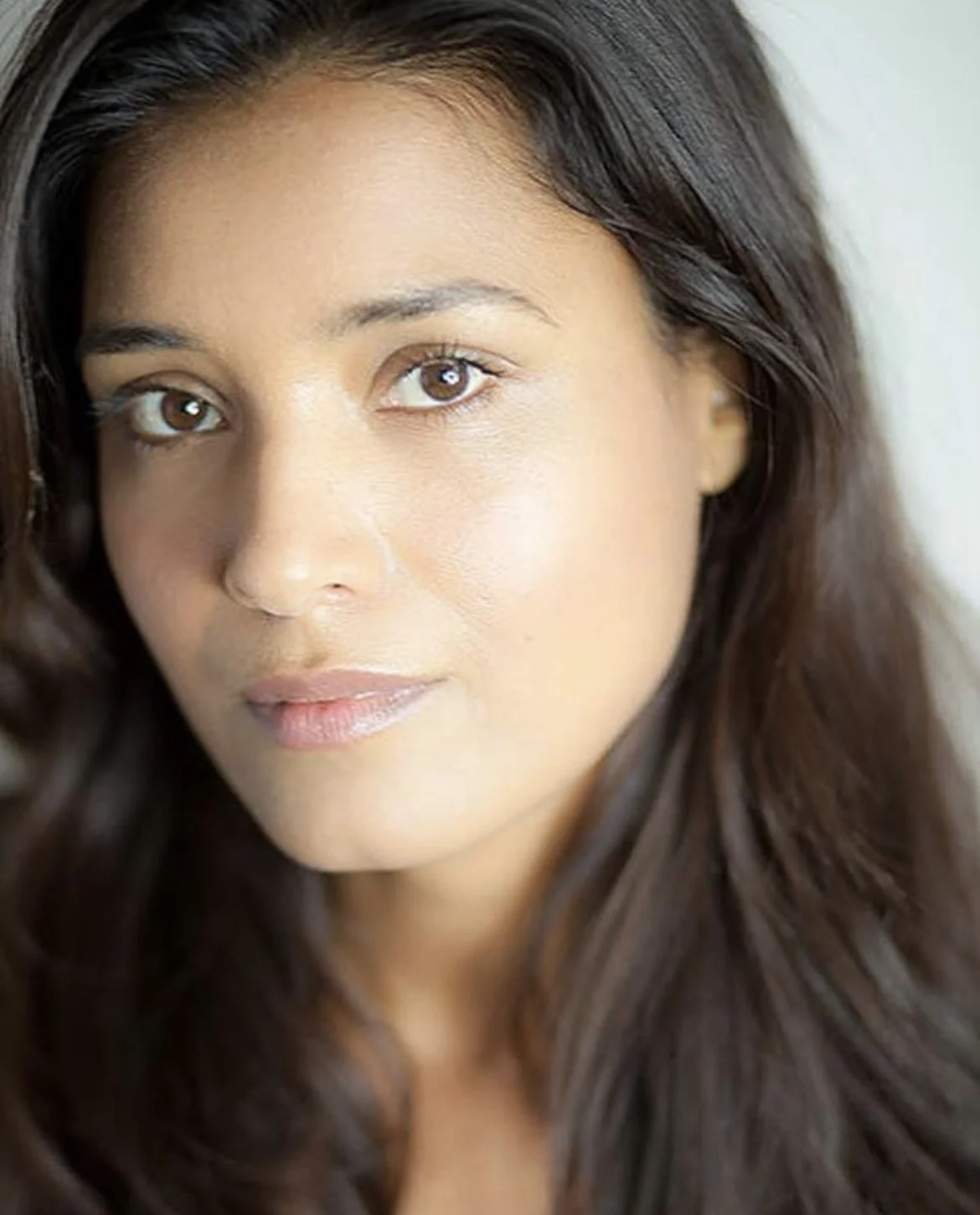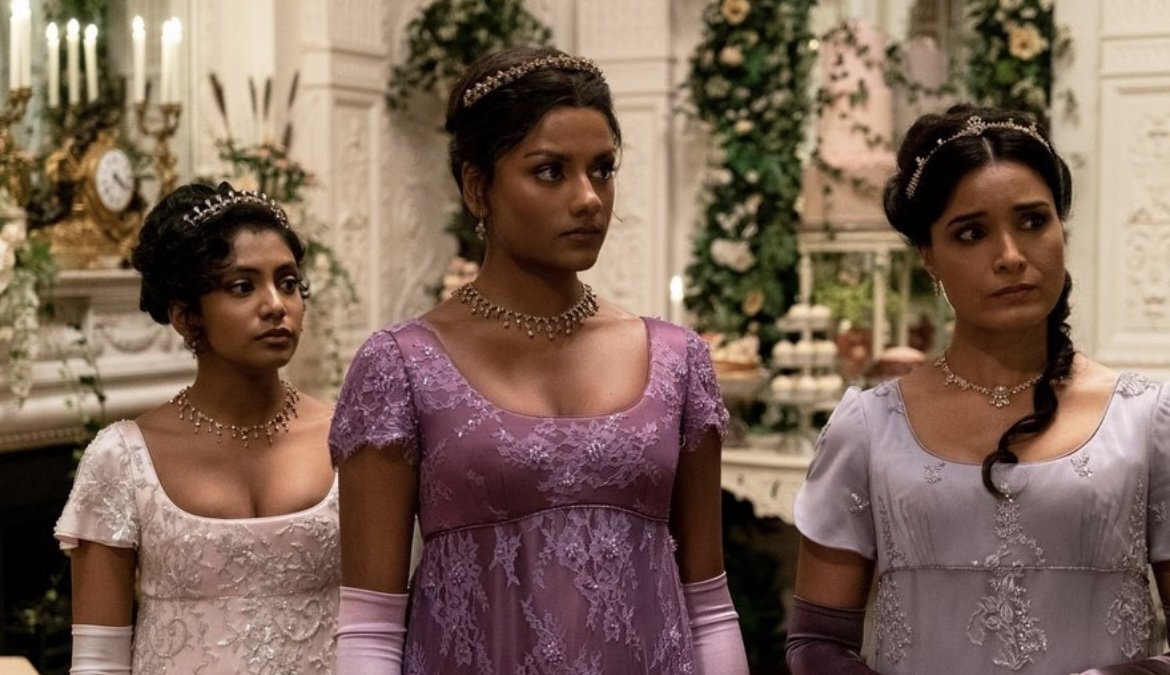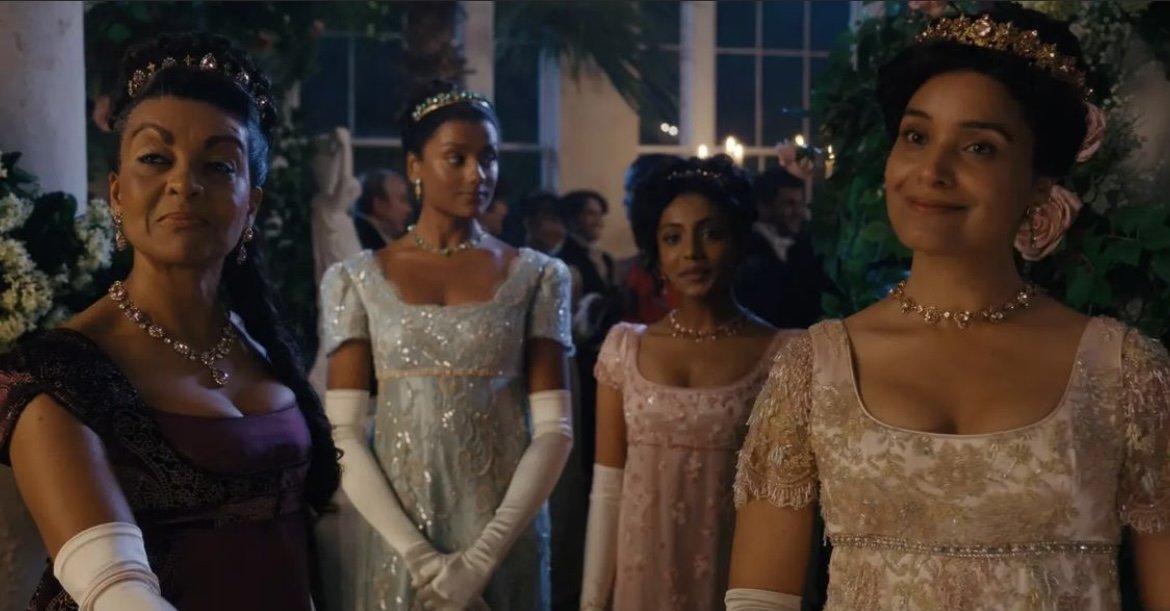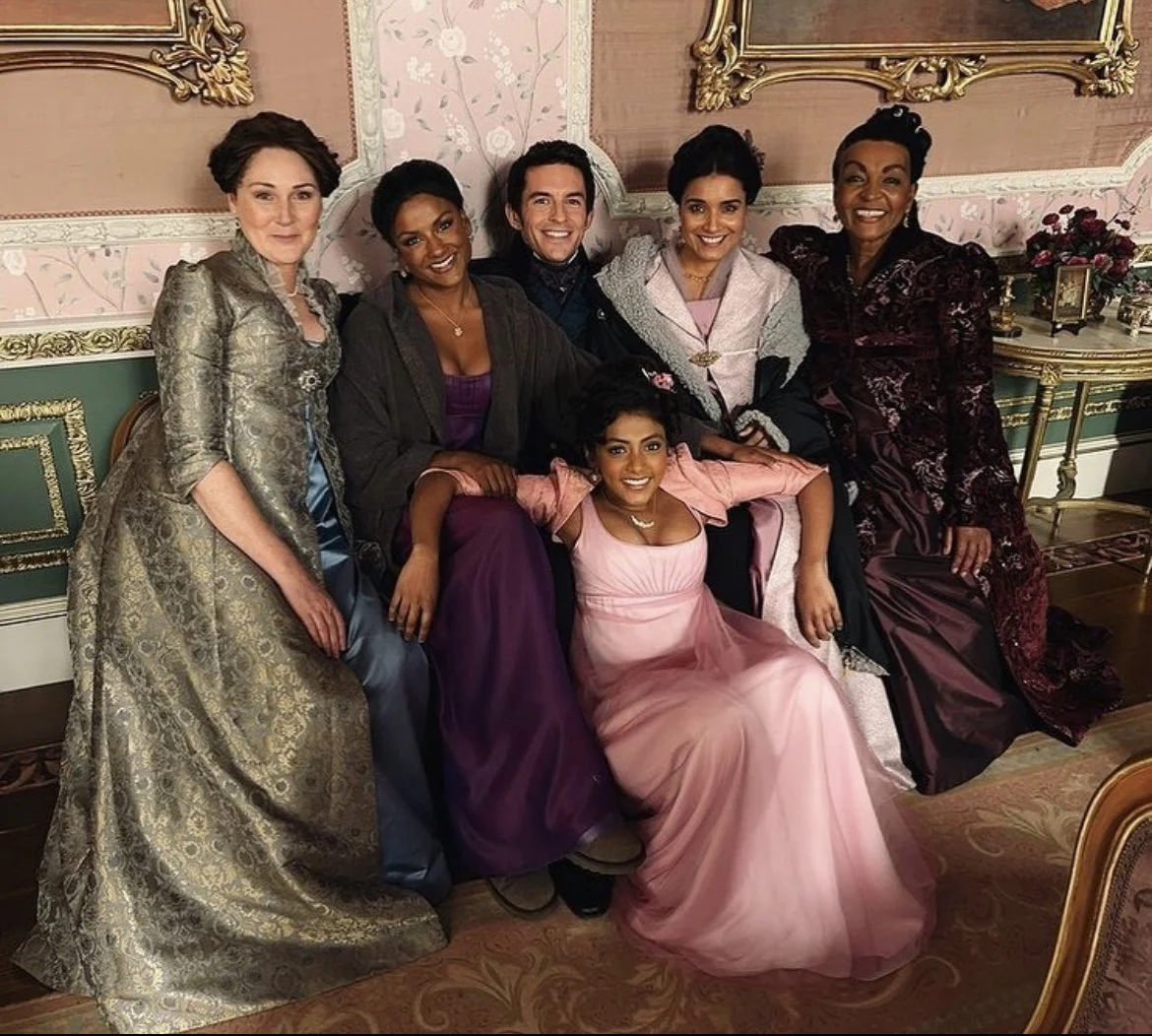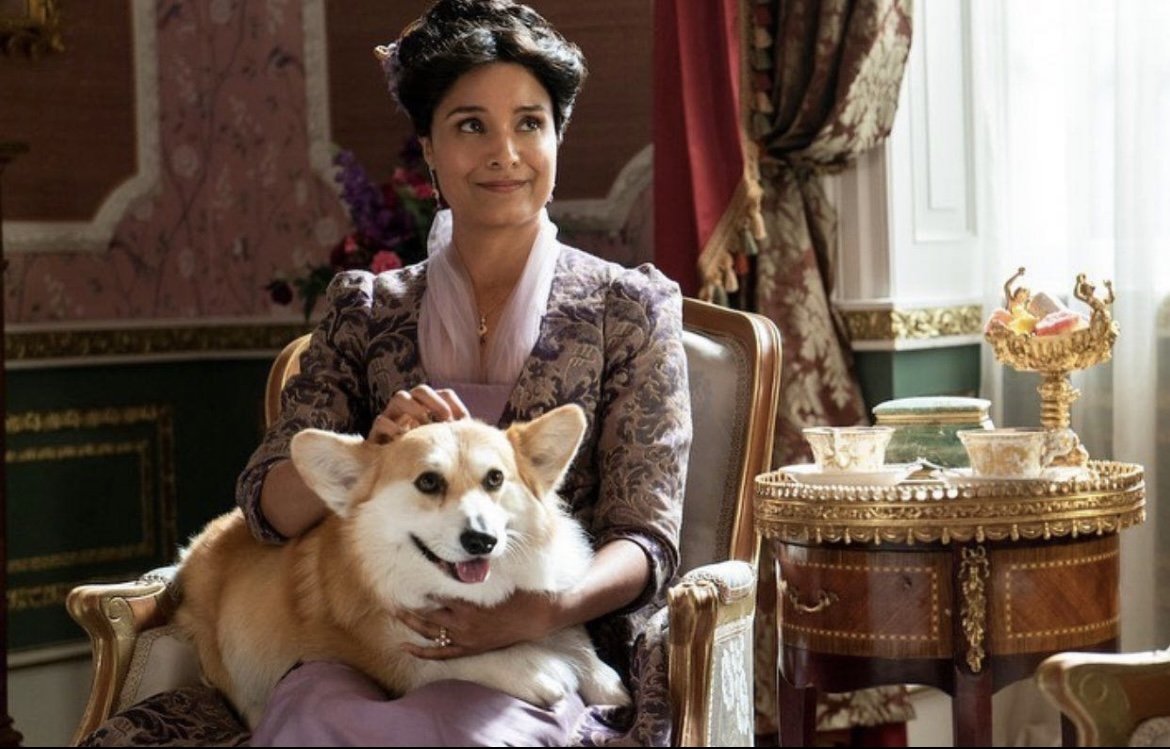Meet Bridgerton's season two mama, Lady Mary actress, Shelley Conn
With a 20 year career that spans TV, theatre, cinema and radio, and a starring role in Steven Speilberg’s Terra Nova, a show which saw the most expensive first season of television, Shelley Conn is a beautiful and experienced, powerhouse of talent.
But the experience of filming Bridgerton, she says, was unlike any other: “it was incredible. Not just because it's the phenomenon that it is, but during last year, which was so miserable for everybody, to be on these incredible sets and in these incredible locations, it was a joy, really. And there was a really lovely gelling of cast and crew. I got this lovely residue of good feeling, like an afterglow.” Speaking of the crew, she says, “I mean, you've never seen a wardrobe department like it. You can imagine the props and people who have worked on them: costume designers and makers. People who have worked on enormous superhero movies have said there's nothing like Bridgerton.”
So given the elaborate costumes, was she in hair and makeup for a long time? “They set aside a good half an hour to get you into the wardrobe,” she says. “Pulling on a corset, and the layers and layers that go with it, there's no doubt that it absolutely informs your physicality and therefore your character, your character’s history and the constraints, literally of a woman of the period.” She notes however that “the guys were trussed up as well. And they would have to wear wigs. I would say, there's kind of like two moments, at the end of the day, where you get a double ‘ah’: once when the corset comes up and once when the wig comes off because there's a lot of pins and what-not. On my last day, actually, I did a time lapse video of myself in hair and make-up and it looks like I've got this team of people around me. It speaks to the amount of work that goes into it. But actually, they make it look effortless. There's just a lot of skill.”
One of the skills of Julia Quinn, the author of the Bridgerton books, is showcasing underlying societal issues that women in particular, faced during the Regency era. One that Shelley’s character Lady Mary faces in the show, is the concept of marrying outside of your social station. It’s still a major concern sometimes in south Asian society, particularly, with regards to the caste system. How did she relate to that? “If I'm honest, it is mainly as an observer, because my parents are Anglo Indian in the colonial sense. So the mixed race of both my parents goes back hundreds of years. And even though they were both born in India, and moved over as children, culturally, they sort of aligned themselves more with British culture. Religiously, they were Christian. It was a slight snobbery, in a way, that they kind of assimilated with the British. And then actually, because they were children, when they moved over, they just did assimilate with the British in a way.”
“But,” she notes. “That's not to say, I'm completely naive to what Indian culture is, and I think that somewhere that Britain does align with Indian culture is social class status, in a way that many cultures don't have, so I think that's one of the reasons, Britain, successfully ran an empire in India, possibly because there was an understanding of the caste system as outsiders. But that's sort of where my family history is so I think I can see it [the pressure to marry within or above your social station] in terms of snobbery, in terms of expectation. And also, just from friends I've made, particularly through the acting profession that have opened my eyes to it. Every time I'm in a cast that involves people of South Asian descent, I'm informed and I find myself learning more and more. I think that one of the reasons the writers were keen to make the Sheffield's the Sharma’s, is because it was a nice fit.”
However whilst it is easy to see how an Indian family and its culture would fit into the role and the show, she says, “we've also got to be careful, we don't want to start playing too hard with stereotypes. We don't want to be telling stories that are outside of the realm of the fantasy world of Britain. Let's not pretend that people from India were accepted in aristocratic society in the way that we're saying, you know, it's a fantasy at the end of the day, but on a personal level, on an emotional level, I think that it's worth exploring.” And part of Bridgerton’s tremendous draw is this exploration of fantasy. “I think the underlying feminism, the underlying social comment is absolutely there for anybody that wants to tap into it, but you don't have to, to enjoy it. There's plenty of characters that will offer that for you and I hope the Sharma's can only further enrich that element of Bridgerton. But you know, at the same time, there's a fine line. And I think that's the point with Bridgerton. It's not trying to change history.”
As well as Bridgerton, Shelley, who is charmingly down-to-earth, amiable and thoughtful when we meet, is on the Amazon Prime show Good Omens. The Micheal Sheen and David Tennant starrer is a comedy about a demon, an angel, an antichrist and a witch, and their bungling of the armageddon. She has also worked with her husband on a short film he wrote, titled Fellow Creatures, about how a struggling father’s life is turned upside down when a stranger arrives at his door with a suspiciously seductive offer. The film, I note, very much speaks to our time, with the idea of the worthiness of one life over another reflecting on the way governments around the world have juggled lockdowns and the handling of the pandemic.
“I'm really glad you picked up on that,” she says, kind and gentle throughout our conversation. “It's kind of like, on all levels, the powers that be, how can they decide? How do you choose what one life is worth versus another? But it's also, on a very personal level, we can all sort of say, ‘yeah, I don't like to buy that T shirt from that shop, because we know that they use sweatshops or child labour.’ But at the same time, we have things that we know people have suffered for, for our benefit. So at what level do we acknowledge that? And at what level do we kind of go, that's the way the world is? And it's not meant to be in any way a judgement, because that's the point: we all do it; this is a global human issue. It's more about just asking that question and just something that I think I'm constantly searching for. We can only ask questions of ourselves. Ultimately, yes, we need to ask questions of power and authority, if it feels misplaced, but we can only control ourselves. It feels like we are just so aware and hyper aware of everything now. You're kind of like, ‘ah, where do I focus?”
But she says, this improved awareness that we have has meant that “more and more, I have found that if I raise a question, particularly about race, or gender stereotyping, I'm heard and that hasn't always been the case. I'm sure women who have come before me would say that it's even more prevalent in their careers that they haven't been heard. But certainly, within my career, I can feel there's a big difference between the beginning and where I'm at now. Maybe that's because I got better at asking questions. Maybe it's just because you know, when you get older people have listened to you more. But even when I've seen questions come from younger actresses, I've been pleased to see and to notice that they've been listened to, and that a conversation can be struck.”
Shelley says having conversations is something she loves (and when she has them with mates, she calls them rants and bants) and believes it is a cornerstone to improving the breadth of stories told. “We're not always going to get things right, so we just need to listen more to the people that are telling these stories and get more writers in the room. So Geetika Lizardi was very instrumental in the writer’s room of Bridgerton, in bringing this story, and I feel so grateful to her, but also, you know, props to Shondaland and Netflix for listening to that. We need to have a sense of authenticity. And the only way you'll do that is by listening to the people that know and have experienced it and have lived it and it doesn't mean that you always have to only bring out those elements of their life. But, you know, hear that perspective and see what you can do with it.”
This nuanced and considered approach is also seen in her advice for young South Asian actors looking to enter Hollywood: “I think if that's what your heart is, I would say, there's nothing wrong with having a Hollywood dream at all. But for me, I think the key to success as an actor is knowing it as a craft. I think acting is still caught in that terrible thing of just being seen as a route to being famous and for a lot of actors, that's neither here nor there, whether you're famous, being an actor is a craft, a skill, you don't have to be famous to do it. So, that's the first thing - decide what it is you want to do and explore it and then find the space in your life to dive into that. There's this insatiable appetite for more and more [content]. And so I just kind of think, if I don't get this one, I'll get the next one. I think acting is a lot about getting used to the lifestyle of it. And a lot of that is your hustle. You have to get ready for the knock-backs and not let them define you. It's kind of trusting the universe a little bit, you’re sitting in the line between your comfort zone and reaching out to what's not comfortable, but more exciting, I guess.”
When I ask her about diversity in Hollywood, Shelley says, “I would offer positivity in that it's getting better. Giving us space and us taking our space, and I think so much of it is attitude. And it's a fine line, it's a delicate balance between cockiness and having a quiet confidence that I'm allowed here and have an opportunity to make the most of it really. I think it's about empowering yourself without disempowering anybody else. I think there's room for everybody.” And the fact that just her presence on screen is so inspiring? “I love hearing that because it never occurred to me, honestly, and this sounds ridiculously naive but it never occurred to me that that might be inspiring to people. But it's not just me but the younger generation of actors too like Charithra Chandran and Simone Ashley who play my daughters in the show, because they're brilliant.” As is Shelley, although she is too modest to say so.
